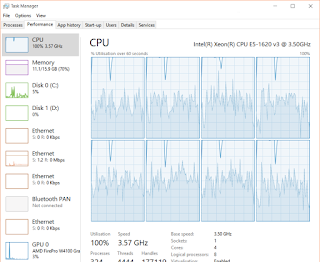Why we have to be more careful about what we read and more importantly what we write
In this day and age it is very uncommon to not use the internet to research or solve problems. Our reliance on printed reference books and even reference sites has dwindled massively.
As developers, especially budding developers, we often just Google our problems, in fact I think most of our senior dev's often say to us "have you Googled it?" When asked about something.
Now googling things of course has changed our industry, we can often solve problems or get good starting points within seconds.
This on its own is not a bad thing, we google we get the results and we crack on. The problem however is when you pick the first item or a random article and use what someone else has written as FACT.
The problem with our "Google" culture, this applys to more than programming, is that we often don't filter what we read. We suffer from fps, first page symdrom. If its on the first page of our results it has to be correct.
Sadly though all too often the actual blogs or forum posts we end up reading are from FACT. Today I was investigating an issue with a JS tab solution I had wrote and sadly found a ton of some very poor "tutorials". These articles / blogs although well presented and often written with the best intentions often lead people to learn / pick up bad habits. I won't name the article that prompted me to write this but to say the solution was so far wrong is an understatement.
New developers will always trust what they read, I think it stems from how our education systems work. I believe we need to refine our "google" culture tendencies and in particular our FPS.
How do we change this? Firstly we need to encourage people to not just read the first article / blog they reach from a search. Instead to open several tabs of articles on the subject matter and then read each one, and then and only then look at the common concepts / answers they provide. We need to consider multiple sources before something is FACT.
Also I believe blog and article writers also have an obligation to research / check out what others think or do regarding a subject before they post onto the internet. This also applies to big sites like the BBC, in fact the bigger you are the more this applies.
Its great to share solutions to problems and to write about things we like, things we have done, things we think are cool but we must ensure that what we write is technically sound, otherwise we continue to breed a culture and community of half baked products and websites.
This is where I believe sites like stack overflow and all their derivatives will help. As these sites continue to grow and questions with highly voted answers appear in our search engines, hopefully quality will begin to cut through the noise.
Our "google" culture no doubt makes things easier and quicker and I'm a believer in "have you Googled for it?" , but I do think us as writers and us as searchers need to be more analytical of what we read in order to produce things of higher quality and to grow in our profession.


In a lot of these "bad information" cases you have tons of comments posted by equally clueless people along the lines of "good job!" etc which only serves to give artificial authority to the post or tutorial.
ReplyDeleteI also think that when someone says "have you Googled it?" what they quite often mean is "have you used Google to search MSDN?" so it would be really useful to have an option in Google to automatically weight results by Technorati authority, for example.
I totally agree, people often use comments to decide on the validity of a post, but when people are wrongly saying "good job" this only compounds the problem.
ReplyDeleteI also agree with Googling meaning MSDN for .Net languages but for JavaScript and in particular jQuery you don't have such a resource which is why there's a lot of bad, slow, some times browser killing JS on websites.
Is Technorati Rank still considered authoritive? I can't remember the last time I heard Technorati brought up, it's a sound idea but does it work? How could we make it work?